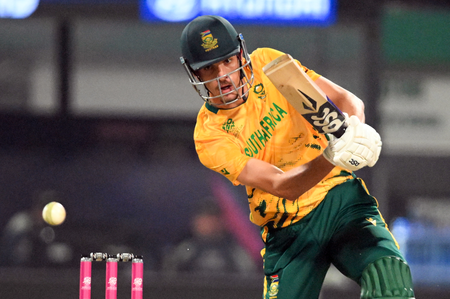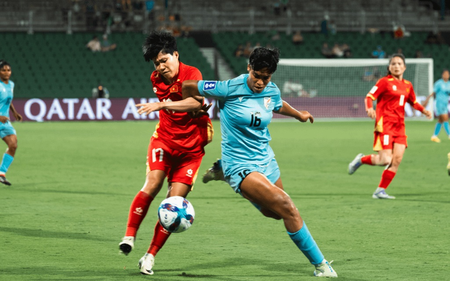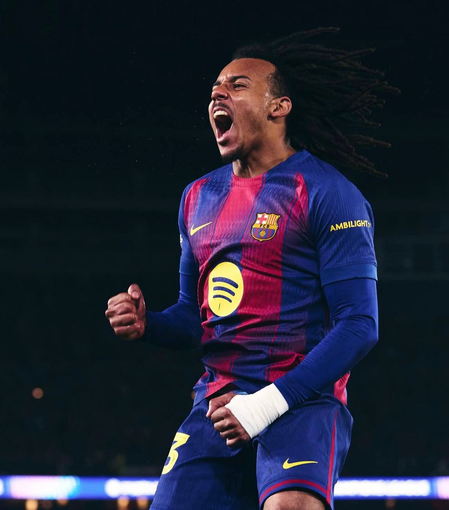
New Delhi, Sep 16 (IANS) England’s upcoming five-match ODI series against Australia will see a new leader for the hosts in young batter Harry Brook. He gets the top job after regular skipper Jos Buttler was ruled out due to a calf injury he sustained in July. Brook had captained England in the 2018 Under-19 World Cup and recently led Northern Superchargers in The Hundred this year, where the team won five out of six matches under him.
With England bringing in fresh faces like Jacob Bethell, Jamie Smith, Jordan Cox and Jordan Turner, it’s a clear indication of the side aiming to build teams for the 2025 Champions Trophy and 2026 Men’s T20 World Cup.
Reece Topley, England’s tall left-arm fast-bowler, spoke exclusively to IANS in a chat facilitated by Sony Sports Network, on Brook’s appointment as the captain for the upcoming ODI series, youngsters coming into the squad, the challenge from Australia and more. Excerpts:
Q. How do you view the appointment of Harry Brook as England’s ODI captain and how would you, as a senior player, support a new skipper at the helm for the Australia series?
A. I wouldn’t call myself a senior player, but I played under Harry a little bit for The Hundred. I mean, it’s interesting because I don’t know how many people would have been sort of noting Harry as a natural successor. Obviously, it would have been ideal if Jos was playing the series – like he’s still firmly the captain and probably going to lead the white-ball side for the Champions Trophy, which is what all our focus is on.
But it’s a great chance for Harry to get some international (leadership) experience under his belt. He did the job very well during The Hundred and I suppose this is just a natural progression (for him) in the challenge of captaining a side that is taking control in a bilateral series against Australia.
Q. How can Brendon McCullum transform England’s white-ball side as its head coach, though he’s due to take charge only from 2025?
A. I don’t necessarily think it needs to be transformed – it’s the side that you got to the semifinals and lost against a very good India side at the (T20) World Cup. Maybe the 50-over side, which was a bit of disappointment after the last (ODI) World Cup, might need a little bit of refocusing.
But I think our white-ball setup has been a well-oiled machine for a number of years now. Maybe transforming isn’t the word, but maybe it’s kind of like just rejigging and refocusing a few things to get back to where we were, which is one of the best sides in the world.
Q. With England bringing in new players across both white-ball sides, do you think this is the start of a transition phase for the team to build towards future global events?
A. You have to play some new guys at some point. The other thing is with the players that potentially moved on, I don’t think that they’re suddenly going to be worse cricketers overnight. Like, with what you can get from them, they could be maybe called upon at any time.
But you have to have a look at some new people along the way at some point. I guess this is a good opportunity, as it’s a bilateral series against Australia. So it’s a really good chance to test people and see how they deal with international cricket.
Q. How do you see the challenge from Australia in the upcoming ODI series, considering they are current ODI World Cup holders?
A. In all three formats Australia has been a successful team in recent history. They seem to be very settled and that’s obviously a place where we were and a place where we’re going to try and get to now. You always want to test yourself at the best. I thought it’s a chance for you to really know where you are and it’s a good time for self-reflection.
Obviously, some new guys are to go into the series and get tested against some of the very, very best people – the reigning champions. So, it’s a great time to see what it’s about, see the standards that need to be set and test yourself and see where you are as a player.
Q. How much England are going to miss the services of Moeen Ali in white-ball cricket?
A. Mo will be missed – his cricketing ability, responsibilities and the options he would give you all of that speaks for itself. But speaking personally, I’ll miss his influence around the changing room. He was an awesome bloke to be around to talk cricket, not talk cricket with, and then have a joke.
So I think his presence will be missed for sure. He’s a guy that you can lean on in various times and he was a leader in the change room. So, his presence will be missed. But it’s a great opportunity for someone to fill those pretty big boots that have been left, and someone’s going to have the chance to fill them.
Q. How do you view 2024 so far for yourself as a cricketer?
A. I’ll be honest – it’s been a bit of an up-and-down year for me. Hasn’t gone as well as I’d hoped to be honest. I’m quite highly critical of myself. It feels like I’ve been around cricket a lot, but I haven’t sort of played continuously for a while. Obviously, the (T20) World Cup and Durban (SA20 stint) had a lot of game time, and a quite successful season and getting to the final.
But it’s been pretty stop-start other than that. I’m someone that needs to play and play on the park and find my feet, get my rhythm. But the stop-starter nature of that doesn’t sort of benefit me much. Then there’s a lot of cricket still to play and a hell of a busy winter. So I’m looking forward to hopefully getting that bit of continuity that I’m craving at the minute.
Q. How do you view the future of the 50-over format, especially with many saying its existence is under threat?
A. As a player, it’s quite frustrating because all the press that you’re seeing to read at the minute is, this format’s in danger, and people aren’t wanting to watch this or the tickets are too much for this. It seems to be just a consistent barrage of negative press about the state of the game, which as a player, is quite depressing because I just want to play any format and try and win a game of cricket.
I know that it’s not my responsibility, as anyone who’s an administrator in the game, it’s their responsibility to take control of that. But we put a huge amount of pride in playing all three formats of the game. So, it’s hard to see where the narrative comes from because this series is huge and there are guys who are playing their first series and it’s their first taste (of international cricket).
So you want to bring that intensity to make it memorable for them. Whether it’s your first series or 20th series, it’s always special playing for England and you want to sort of get that message across to people that are impressionable, as it’s their first time in the change room.
Q. What has travelling to different places around the world taught about yourself as a cricketer and human being?
A. This is the biggest positive about playing cricket – I love getting out and about. In the IPL, I was able to travel wherever I went to. We spent a bit of time in different cities and, I loved getting to know the different intricacies of different places. I can’t wait to get back to the Caribbean, as each island again has its own beauty.
Similarly, when we’re playing in England, it’s quite nice to get around the cities in your own country and see what’s different and how people sort of live in different places. I mean, it’s great to take things. I like the spirituality of India and sort of everyone’s on their own journey in that respect, and that’s totally different to when you’re in the UK.
People are sort of just incredibly different. So that’s the best thing, as I like going to different countries and getting to know the people and almost like picking different things that I can sort of take home to my life, and learn about stuff that I’d never have come across being at home in London and then trying to implement them in my life.
The first ODI of the Australia Tour of England will be aired LIVE on Sony Sports Ten 5 SD & HD channels on September 19.
–IANS
nr/bsk/




